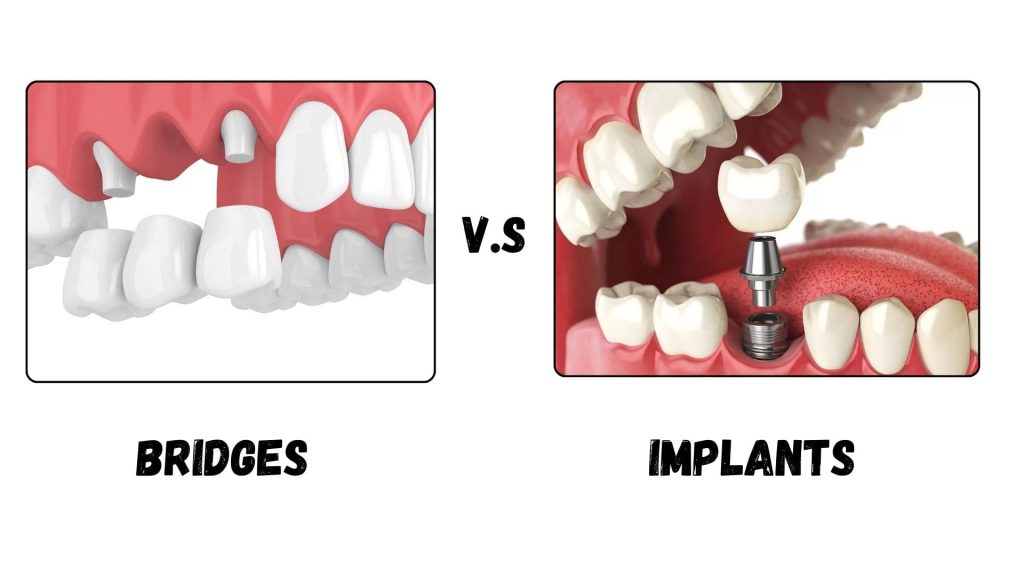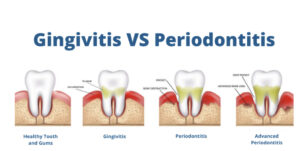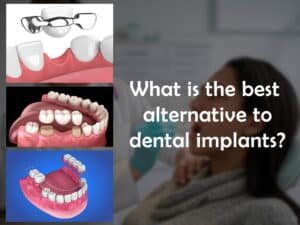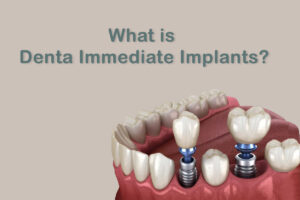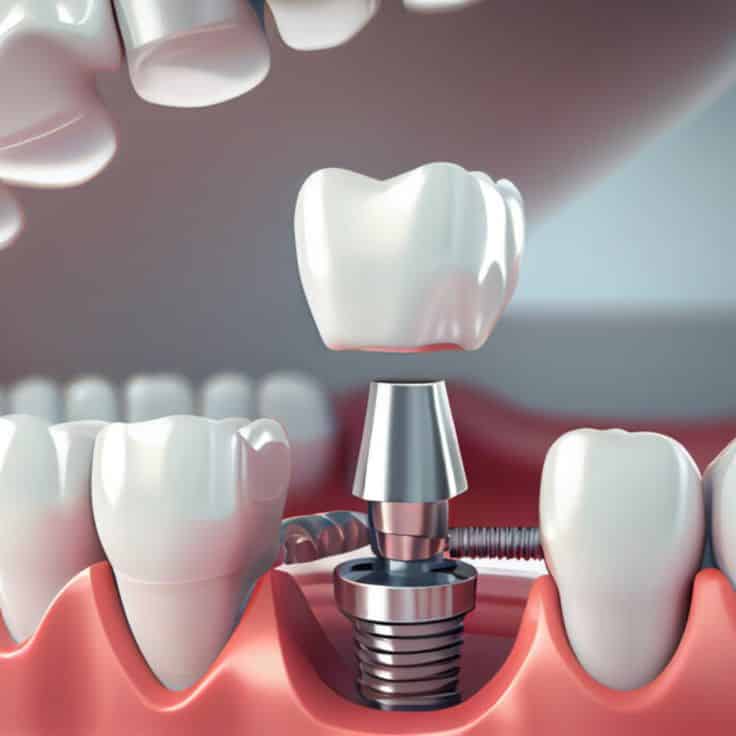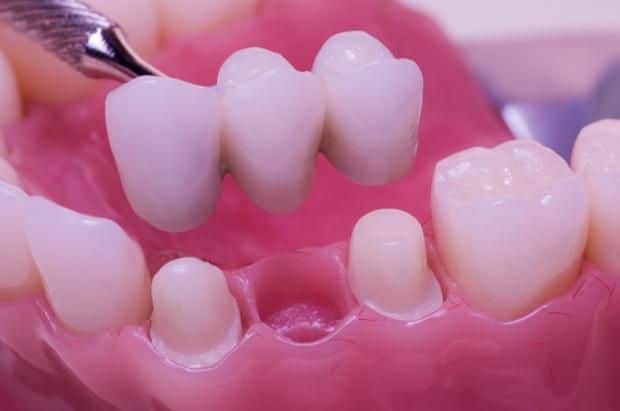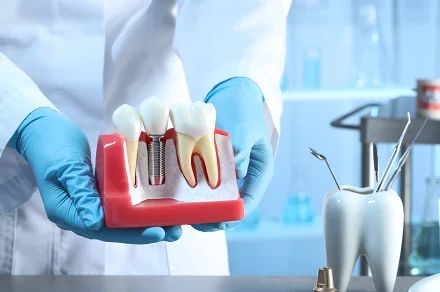When you have to make a decision to replace missing teeth, two of the most popular options are dental bridges and dental implants. Knowing the differences between these alternatives is important for making the right decision for your dental health. In this article the advantages of implants compared to bridges will be explored to help you understand which option might suit you better.
What Is a Dental Bridge?
A dental bridge is a solution that fills the space created by one or more missing teeth. It consists of artificial teeth, known as pontics, which are supported by crowns placed on the adjacent natural teeth or implants. This solution is generally chosen because it effectively brings back both function and appearance. Bridges help you regain your smile and improve your ability to chew food easily.
Types of Dental Bridges
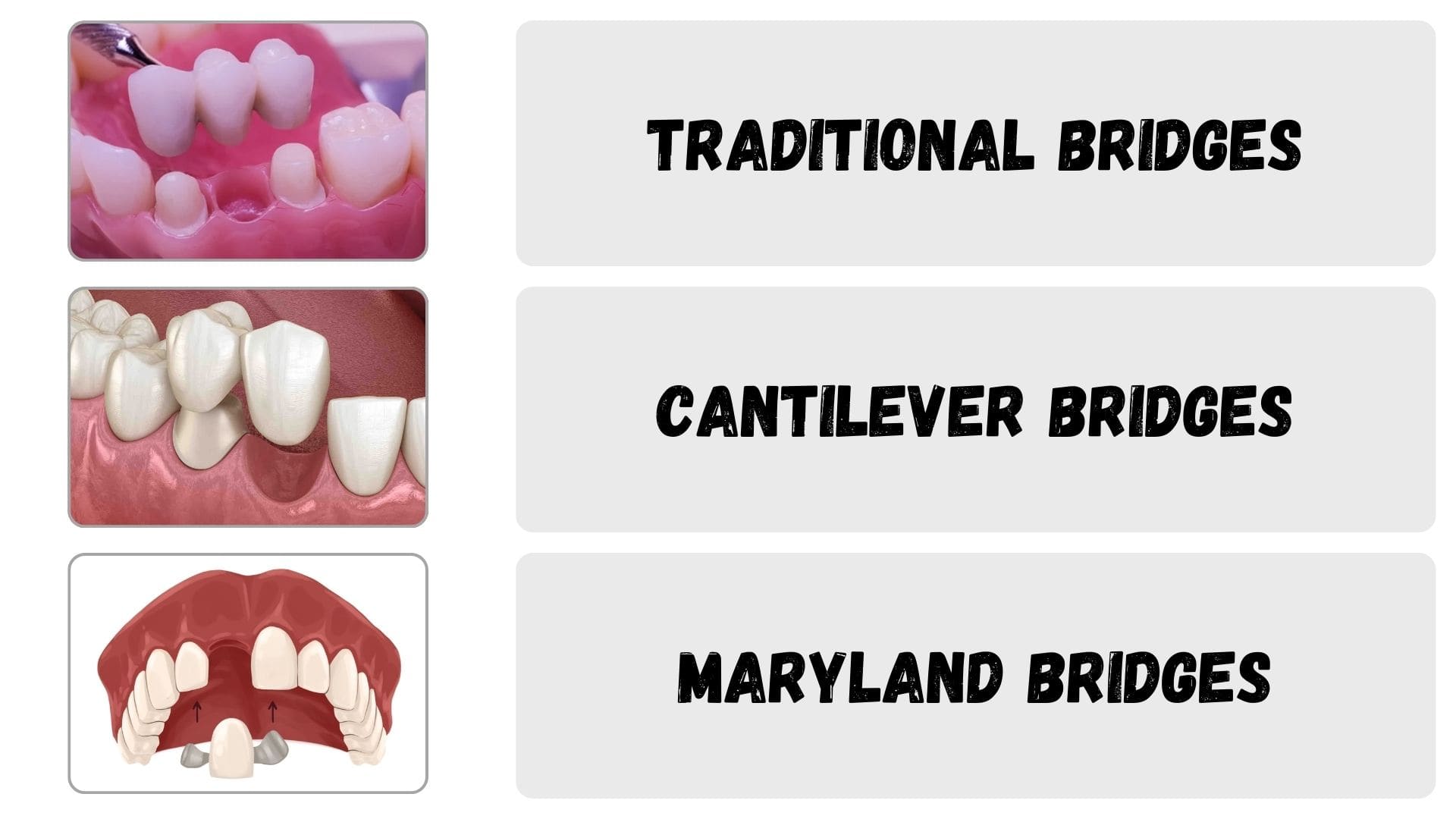
- Traditional Bridges: These are the most common type and involve crowns on neighboring teeth for support.
- Cantilever Bridges: Used when there is only one adjacent tooth available, providing stability.
- Maryland Bridges: These have a framework that attaches to the back of adjacent teeth, making them less invasive.
What Is a Dental Implant?
A dental implant is a titanium post that is placed into your jawbone to serve as a replacement root for a missing tooth. After being healed, this titanium post can support an artificial tooth or crown as a permanent solution. Dental implants are known for their durability as well as ability to function similar to natural teeth.
The Dental Implant Procedure
- Initial Consultation: Your dentist will examine your mouth and X-rays will be taken in order to determine if you are a good candidate for implants.
- Surgical Placement: The titanium post is inserted into your jawbone under local anesthesia.
- Healing Period: The bone needs time to fuse with the implant, which can take several months.
- Crown Placement: Once healed, an abutment is attached to the implant, followed by placing a custom crown.
Key Differences Between Dental Bridges and Implants
| Feature | Dental Bridge | Dental Implant |
| Surgical Requirement | No surgery required | Requires surgical procedure |
| Longevity | 5-15 years | Can last a lifetime |
| Impact on Adjacent Teeth | Requires alteration of adjacent teeth | No alteration needed |
| Bone Preservation | Does not prevent bone loss | Preserves jawbone density |
| Cost | Generally lower upfront cost | Higher initial cost but long-term value |
| Maintenance | May require replacement | Long-lasting with proper care |
Advantages of Dental Implants Compared to Bridges
- Longevity
Dental implants can last a lifetime if proper care is given, while bridges usually need replacement every 5 to 15 years due to wear and tear. This durability makes implants a wise decision and a smart investment for those seeking long-term solutions. - Bone Health
Implants help maintain jawbone health by mimicking natural tooth roots which help prevent bone loss that often happens when teeth are missing. In contrast, bridges do not provide this benefit since they do not stimulate the jawbone. Keeping your jawbone healthy is vital for overall oral function and appearance over time. - Aesthetic Appeal
Implants look and feel like real teeth, while bridges may be slightly visible between replacement teeth. Many patients report higher satisfaction with their smile after getting implants compared to those who have chosen bridges. - No Impact on Adjacent Teeth
Bridges require filing down nearby healthy teeth for support, which can cause them to be weakened over time. Implants do not affect surrounding teeth since they stand alone and this independence from adjacent teeth contributes to better overall oral health in the long run. - Improved Functionality
Implants provide better chewing efficiency and speech clarity compared to bridges because they are attached directly into the jawbone. This improved functionality improves daily activities such as eating and speaking, leading to a better quality of life for patients. - Easier Oral Hygiene
Dental implants are easier to clean than bridges because they don’t require special cleaning techniques or tools like floss threaders or special brushes designed for bridges. You can brush and floss them just like natural teeth, which helps maintain good oral hygiene and reduces the risk of gum disease. This ease of maintenance encourages better dental care overall. - Prevention of Facial Changes
Missing teeth can lead to changes in your facial structure over time, causing sagging or an aged appearance because of bone loss in the jaw area. Implants help maintain your facial shape by providing necessary stimulation to the jawbone, preventing these changes from happening quickly as they might with other options like dentures or bridges. This benefit helps you maintain a youthful look longer than other methods might allow.
Disadvantages of Dental Implants Compared to Bridges
- Cost
While implants provide long-term benefits, they generally come with a higher initial cost compared to bridges. Patients should consider their budget when deciding between these options. Exploring financing options may help make dental implants more accessible for those who need them but are concerned about costs upfront. - Surgical Procedure
The implant procedure involves surgery, which may be intimidating for some patients who prefer non-invasive options like bridges. However, advances in dental technology have made this procedure safer and more comfortable than ever before, easing concerns about surgery for many people. - Healing Time
Implants require several months for osseointegration before placing the crown, while bridges can often be completed in just a few visits. Although this waiting period may be inconvenient for those seeking immediate results, it is essential for ensuring long-term success with implants and proper healing of the surgical site.
Things to Think About When Deciding Between Bridges and Implants
- Oral Health
Patients with healthy surrounding bone may benefit from implant, while those with significant bone density issues might be better suited for bridges. Talking to your dentist can give you advice that is tailored to your specific situation and oral health needs. - Lifestyle Preferences
For individuals who prefer quick solutions without surgery, bridges may be more appealing; however, those looking for long-term benefits may opt for implants despite the wait involved in their placement process. Your lifestyle and comfort level should play an important role in deciding which tooth replacement option suits you best based on your needs and preferences as well as any concerns about surgery or healing times involved with dental implants versus traditional bridges or dentures altogether! - Age and Overall Health
Younger patients with fully developed jaws are often ideal candidates for implants; older patients may find that bridges are more suitable if they have health concerns complicating surgery options available today! Assessing your overall health status can guide you toward making an informed choice regarding which option works best given all factors considered together holistically.
Choosing between dental bridges and implants requires careful consideration of various factors including longevity, cost, impact on adjacent teeth, and personal preferences overall! While dental bridges offer quicker solutions without invasive procedures involved at all during treatment processes; dental implants provide significant long-term benefits such as enhanced aesthetics along with preserving jawbone density over time too! Ultimately both options serve their purpose effectively restoring function while improving appearance; understanding their differences will empower you towards making informed decisions tailored specifically towards meeting individual needs effectively!
In summary, both options effectively restore dental function while enhancing appearance; however, understanding their differences will guide you towards making informed decisions tailored specifically towards meeting individual needs effectively!
Misch CE. “Dental Implant Prosthetics.” Elsevier Health Sciences; 2015.
Chestnut Dental Blog: “Bridges vs. Implants: Which is the Best Choice for You?”

